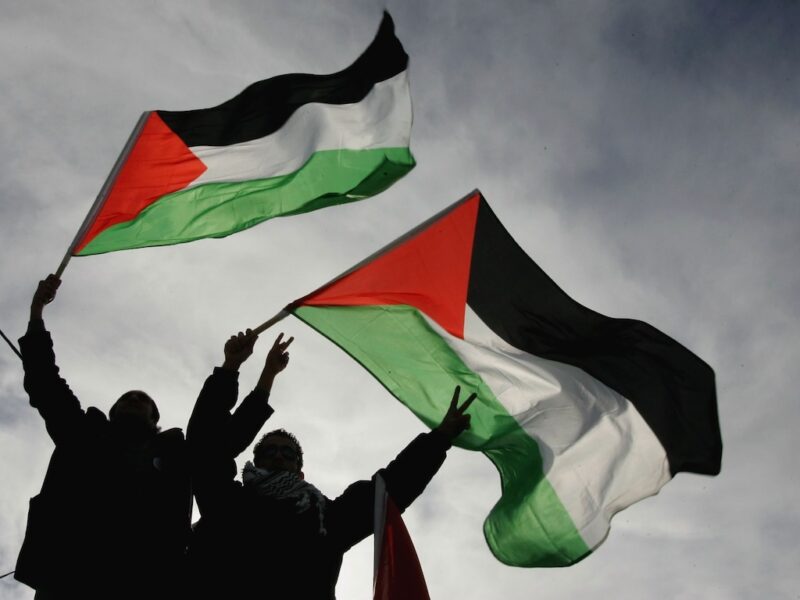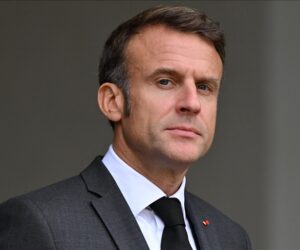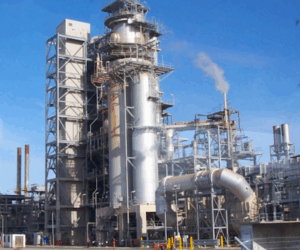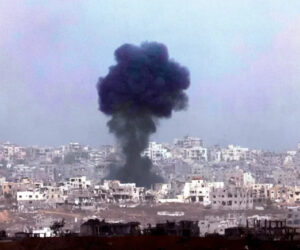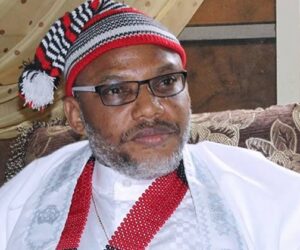The quest for the Palestinian State received acclamatory traction with many nations recognising it penultimate week. Remarkably, western nations and allies of Israel orchestrated this epiphany. The just concluded 80th United Nations General Assembly (UNGA), in New York – the biggest global multilateral stage – readily lent itself for this diplomatic triumph.
There are 193 UN member nations. France, United Kingdom, Canada, Australia, alongside 153 others led the pack. Nigeria, South Africa and Morocco were African countries that welcomed the decision that these pro-Israeli Western countries have finally aligned themselves with, decades after most in the African and Arab worlds had supported this position.
The Palestinian Liberation Organisation (PLO), under Yasser Arafat’s leadership, had on 15 November, 1988 declared the establishment of a sovereign state of Palestine, with Jerusalem as its capital. A host of nations had then voiced their support for this, including 37 African countries, in what was no more than a symbolic gesture. Algeria led the way.
The Oslo Peace Accords of 1993 and 1995 that followed, sought the attainment of a “mutually negotiated two-states” solution to resolving the Israeli-Palestinian tension in the region, but they ultimately did not achieve much, save for limited self-governance by the Palestinians in the West Bank and Gaza Strip. President Bill Clinton of the US had championed these talks that featured Mr Arafat and Yitzhak Rabin, the Israeli Prime Minister.
Since then, things have gone from bad to worse in the relations between Israel and Palestine, while upsetting the regional power dynamics. The Hamas attack of 7 October 2023 on Israel, which is said to have claimed 1,200 lives, in addition to 250 others being taken as hostages, led to the Israeli reprisal that seems to have reshaped the contours of the conflict to the point of no return.
Evidently, the relentless tide of violence unleased by Israel till date has crossed the red line. It has led to the very brutal deaths of no fewer than 65,000 people in Gaza, through vicious military assaults. The world is appalled and outraged by this carnage and magnitude of humanitarian crisis that has been spun therefrom.
The recognition of Palestinian statehood this time enables its opening of diplomatic missions around the globe and engaging in the brokering of trade agreements with other countries. These would increase the pressure of Western powers on the Israeli Prime Minister, Benjamin Netanyahu, on the necessity of a two-state solution in settling the question of Palestine, which Vice President Kashim Shettima, who represented President Bola Tinubu at the UNGA, noted as “the most dignified path to lasting peace.” Importantly, Israel would need to be held accountable for its actions and misdeeds so far.
However, this recognition is far from an elixir. As Martin Griffiths, the director of Group International, observed, “It brings hope. But it does not necessarily bring the future yet.” This cautious optimism is the inherent message in the UK Prime Minister, Keir Starmer’s comment that Britain was “…acting to keep alive the possibility of peace, of a two-state solution.” In this regard, he is pushing for an end to the sales of arms to Israel, more aid to Palestinians, and reforms that would make the “Palestinian Authority fit for purpose.” For the French President, Emmanuel Macron, “We can no longer wait.” Most seem agreed that the latest universal accord would correct the huge errors of the past.
But Mr Netanyahu would have none of these. He sees the recognition of a Palestinian State as “a huge reward to terrorism.” As intransigent as ever, he has vowed that this “will not happen.” Conscious of his country’s growing international isolation, yet his dream is to make Israel a “Super Sparta,” similar to the ancient great Greek state known for its military prowess and resilience amidst adversity. Interestingly, the UN Secretary-General, Antonio Guterres, in a riposte, underscored the fact that statehood for Palestine, “is a right, and not a reward.”
Donald Trump, the president of the US, apparently, is the most important stumbling block to the consummation of this process. However, he is not acting out of character; every US administration has behaved similarly for aeons. On 18 April 2024, the US voted against a UN resolution on the full membership of the world body by Palestine, after it had secured a non-member observer status by a majority vote in 2012.
The statehood for Palestine, for all its significance, will vitiate to mere symbolism if Mr Netanyahu continues to act unhinged. Gaza remains under perpetual military assault and its purported safe northern area is not safe. Natanyahu is being supported in the effort to annex the West Bank by his far-right cabinet.
The rhetoric that “Israel must finish the job” of the complete occupation of Palestine bodes nothing but evil, which is affirmed by the pursuit of genocide and starvation of the Palestinian people – children, women and the vulnerable. It deepens the ongoing ethnic-cleansing and forestalls the possibility of any form of rapprochement between the two nations in real terms.
In contemplating the global dramatic positive turn for Palestine, Mr Trump has unfolded a 20-point agenda to end Israel’s destruction of Gaza. Mr Netanyahu has accepted this, while still maintaining some strong reservations. The Arab world needs to strengthen their diplomatic machinery to make Hamas welcome the agenda if the clause for the recognition of a two-state solution in it is considered realistic.
ALSO READ: UK officially recognises Palestine as a country
PREMIUM TIMES supports the calls for Hamas to release all hostages in its custody and surrender its arms to the Palestinian Authority. Most significantly, the continued forceful evacuation of Palestinians from Gaza needs to stop.
According to the pact, Israel will release about 1,700 long-term Palestinian prisoners and the hundreds held hostage in Gaza. It would also withdraw its troops from Gaza, but maintain military presence there for now, while a Board for Peace, headed by President Trump will oversee the reconstruction of Gaza. This could possibly prefigure the ascent of peace in the region and, hopefully, the attainment of a two-state solution, if Trump is not engaged in another ruse.
The world has been at this crossroads since 1948 when “a national home for the Jewish people” was created in Palestine under the terms of the Mandate entrusted to Britain at the end of World War I. The territory was then divided into two states, without the consent or agreement of the Palestinians.
Thereafter, a swift wave of pan-Arabism triggered a five-nation coalition of Egypt, Jordan, Lebanon, Syria and Iraq, in a war against Israel. But they were routed. This emboldened Israel’s subsequently grab for more land than it was initially granted, through military campaigns into Palestinian territory that have kept deepening till date.
Ever since, the area has been a theatre of occupation and brutal repression, spawning conflicts that have found geopolitical resonance and turned the Middle East into one of the most unstable regions of the world, with political and economic disruptions that have been global in consequence and defied solutions till date.
Now is the time to close this bloody chapter of world history.

